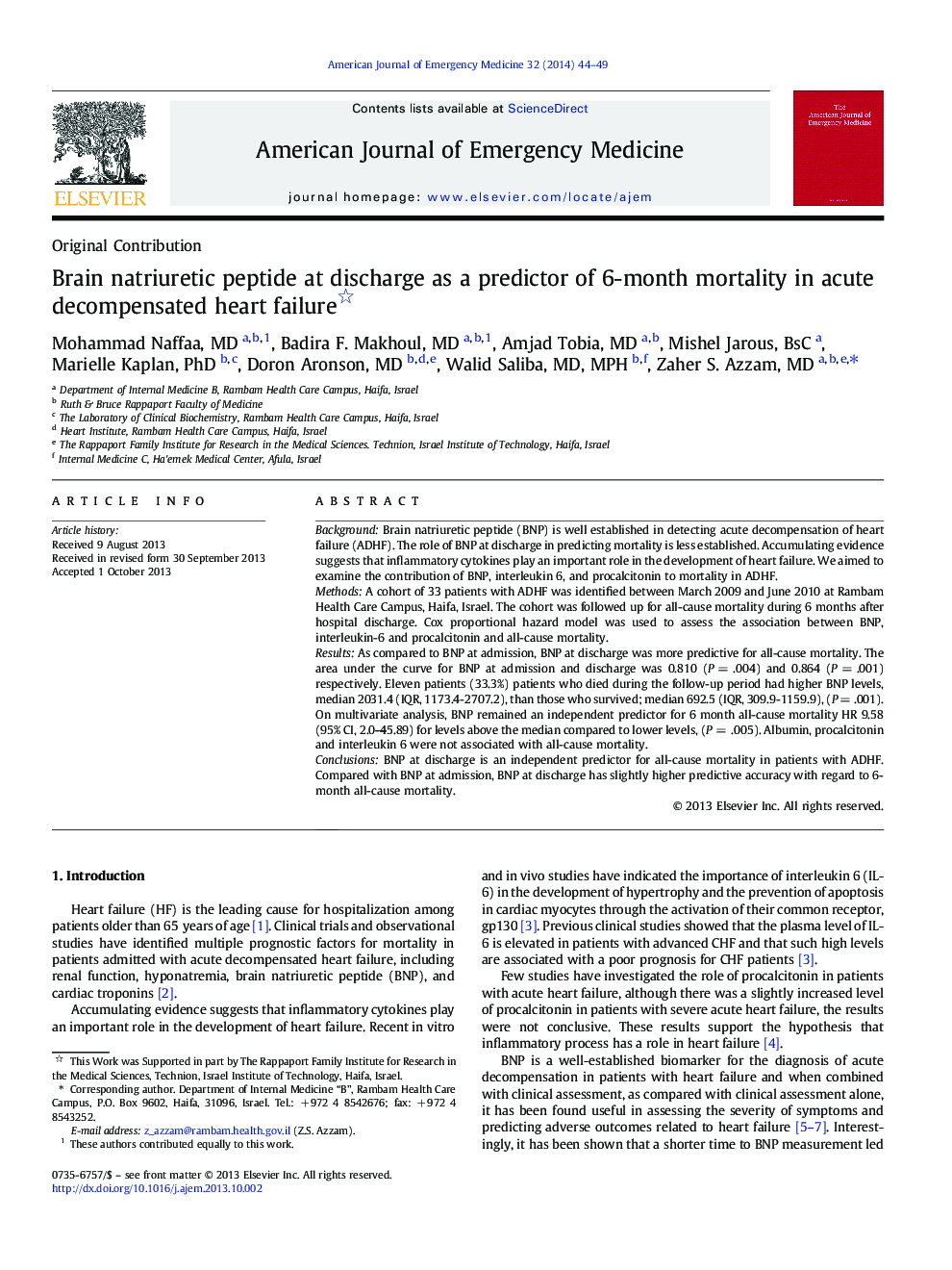| Article ID | Journal | Published Year | Pages | File Type |
|---|---|---|---|---|
| 3224018 | The American Journal of Emergency Medicine | 2014 | 6 Pages |
BackgroundBrain natriuretic peptide (BNP) is well established in detecting acute decompensation of heart failure (ADHF). The role of BNP at discharge in predicting mortality is less established. Accumulating evidence suggests that inflammatory cytokines play an important role in the development of heart failure. We aimed to examine the contribution of BNP, interleukin 6, and procalcitonin to mortality in ADHF.MethodsA cohort of 33 patients with ADHF was identified between March 2009 and June 2010 at Rambam Health Care Campus, Haifa, Israel. The cohort was followed up for all-cause mortality during 6 months after hospital discharge. Cox proportional hazard model was used to assess the association between BNP, interleukin-6 and procalcitonin and all-cause mortality.ResultsAs compared to BNP at admission, BNP at discharge was more predictive for all-cause mortality. The area under the curve for BNP at admission and discharge was 0.810 (P = .004) and 0.864 (P = .001) respectively. Eleven patients (33.3%) patients who died during the follow-up period had higher BNP levels, median 2031.4 (IQR, 1173.4-2707.2), than those who survived; median 692.5 (IQR, 309.9-1159.9), (P = .001). On multivariate analysis, BNP remained an independent predictor for 6 month all-cause mortality HR 9.58 (95% CI, 2.0-45.89) for levels above the median compared to lower levels, (P = .005). Albumin, procalcitonin and interleukin 6 were not associated with all-cause mortality.ConclusionsBNP at discharge is an independent predictor for all-cause mortality in patients with ADHF. Compared with BNP at admission, BNP at discharge has slightly higher predictive accuracy with regard to 6-month all-cause mortality.
